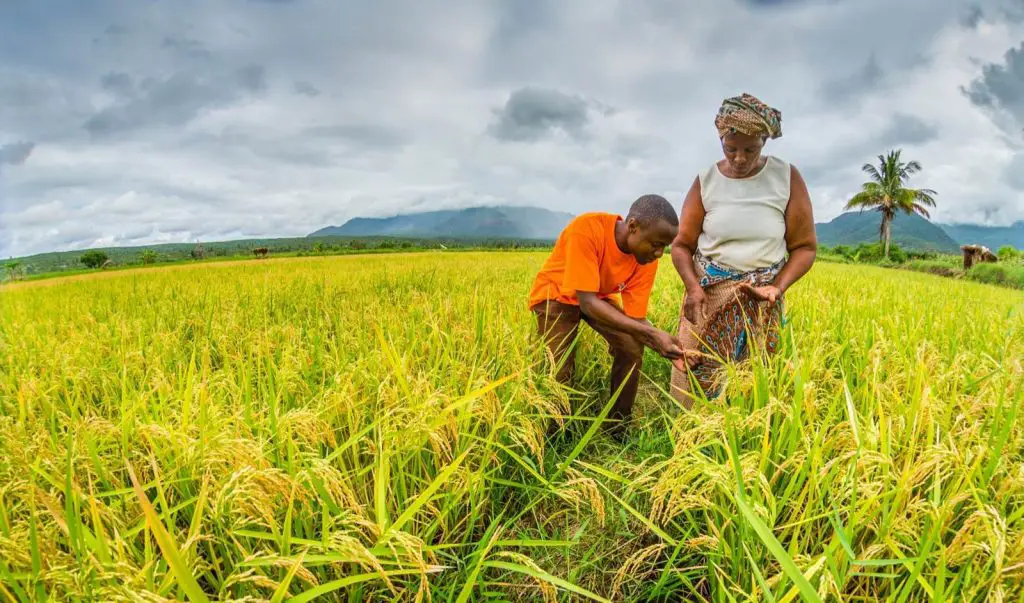The East and Southern Africa Breeding Network (ESABN) on 4th May, 2018 launched the accelerated genetic gain in rice (AGGRI) project aiming at the empowering women involved in rice value chain in the region.
The launch of the project was on the sideline of the just- concluded three-day 11th East and Southern Africa Breeding Network meeting held in Dar es Salaam.
Speaking soon after launching the initiative, representative of International Rice Research Institute (IRRI) for Eastern and Southern Africa, Abdelbagi Ismail said that the beneficiaries will be unified by a set of standards developed to make breeding decisions consistent with the demand of regional farmers, consumers and processors.
Funded by Bill and Melinda Gates Foundation (BMGF), the Initiative is also aimed at expanding International Rice Research Institute (IRRI) `s variety testing network into a globally aligned, modernized, rice breeding `community of practice`
In another development, IRRI`s targets over the next three years will be to support Tanzania in achieving rice self-sufficient production and becoming an exporter of the commodity in the region.
The number and diversity of IRRI staff deployed in the country will at least double; rice production technologies that increase yield by at least 0.5 tonnes per hector will be delivered and adopted by farmers in pilot sites; and farmers, extension staff, seed technicians and researchers will be trained in various aspects of rice research.
He however urged rice growers to embrace modern farming methods to increase production per acreage hence improve the country`s food security. He said that reports have it that most rice growers have been growing using traditional methods, with no application of fertilizer and use of archaic farming tools, ending up getting little.
`It is high time for farmers in the region to venture into the effective use of improved seeds and agricultural inputs to increase productivity, he said.
Dr. Hans Bhardwaj, plant breeding management leader at IRRI suggested the need for Africa to stop importing rice from outside the continent and instead increase production locally. `Experts and decision makers should encourage farmers to venture into growing improved seeds and use modern farming practices.`
The meeting involved a number of stakeholders and rice breeders from Eastern and Southern African countries such as Tanzania, Kenya, Burundi and Mozambique.
Anti-poverty initiatives in Africa
In 2016, the Bill and Melinda Foundation co-chair, Bill Gates announced that his foundation would invest $5 billion in the period 2016-2021 in support of health and anti-poverty initiatives in Africa. He spoke this at the annual Nelson Mandela Lecture at the University of Pretoria. In his remarks, Gates noted the progress African countries have made in reducing child mortality, eradicating polio, and fighting malaria and the HIV/AIDS epidemic and pointed to expanded access to contraceptives, the creation of new vaccines that protect children from pneumonia and severe diarrhea, and investments in strong, community-based primary healthcare systems in Malawi, Ethiopia, and Rwanda as additional signs of progress. Over the last 15 years, the Bill and Melinda Gates Foundation has spent over $9 billion on poverty eradication initiatives in Africa.
Rice is a staple food in many countries of Africa and constitutes a major part of the diet in many others. During the past three decades the crop has seen consistent increases in demand and its growing importance is evident in the strategic food security planning policies of many countries. With the exception of a few countries that have attained self-sufficiency in rice production, rice demand exceeds production and large quantities of rice are imported to meet demand at a huge cost in hard currency. Africa consumes a total of 11.6 million tonnes of milled rice per year (FAO, 1996), of which 3.3 million tonnes (33.6 percent) is imported. As many as 21 of the 39 rice-producing countries in Africa import between 50 and 99 percent of their rice requirements. The distribution of rice importation on a regional basis appears skewed, with the North and Central Africa regions setting the lower (1.7 percent) and upper (71.7 percent) limits, respectively.
Africa’s inability to reach self-sufficiency in rice is the result of several major constraints in the rice industry which require urgent redress to stem the trend of over-reliance on imports and to satisfy the increasing demand for rice in areas where the potential of local production resources is exploited at very low levels.
